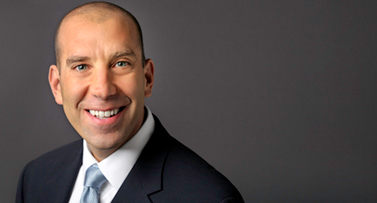
By Aaron Schechter, CPA, CA, TEP – Crowe Soberman LLP
Special to the Financial Independence Hub
In the Aesop fable of “The Ant and the Grasshopper,” a hungry grasshopper is refused food by the hard-working ant when the winter comes. The fable sums up the moral lessons about the virtues of hard work and planning for the future. As you get ready to file your 2015 personal income taxes, now is the time to look ahead and plan for 2016.
Reduction in the small business corporate income tax rate
Canadian-controlled private corporations (CCPCs) are entitled to claim a small business deduction on the first $500,000 of business income. Commencing in 2016, the federal tax rate will decrease by 0.5% a year for four years, reducing the small business income tax rate in Ontario to 15.0% in 2016, 14.5% in 2017, 14.0% in 2018, and 13.5% in 2019.
Tax planning point: Defer the receipt or recognition of corporate income eligible for the small business deduction limit to future years.
Increase in the top personal federal tax rate
For 2016, individuals with income over $200,000 will be subject to an increased federal tax rate of 33%. This 4% increase will bring the combined top tax rate in Ontario to 53.53% (2015: 49.53%).
Tax planning point: If you are going to be in the highest marginal tax bracket in 2016, consider postponing a 2015 RRSP contribution to 2016.
| Combined Top Marginal Personal Tax Rates For Ontario Taxpayers – 2016 vs. 2015 | ||||
| Salary | Capital Gains | Eligible Dividends | Non-eligible Dividends | |
| 2016 | 53.53% | 26.76% | 39.34% | 45.30% |
| 2015 | 49.53% | 24.76% | 33.82% | 40.13% |
Increase in the personal dividend tax rates
There will be an increase in the federal personal income tax rate on non-eligible dividends beginning in 2016. Non-eligible dividends are taxable dividends that are paid out of corporate income that has been taxed at the small business rate. Individuals living in Ontario in the highest marginal tax bracket in 2016 will pay tax on non-eligible dividends at the rate of 45.30% (2015: 40.13%).
For individuals in Ontario, the tax rate on eligible dividends will decrease or remain the same for all but the top two income tax brackets. High-income earners will see an increase of 5.5% on eligible dividends in the top tax bracket. Eligible dividends are taxable dividends that are paid out of corporate income that was not subject to the small business rate. This includes taxable dividends from public companies.
Tax planning point: If there is a positive balance in your CCPC’s capital dividend account, consider paying out a tax-free capital dividend in 2016.
Change in donation tax credit rate for high-income earners
The increase to the highest federal personal income tax rate for 2016 may have created a larger disincentive for high-income earners to make charitable donations since the donation credit only provided tax relief at $0.46 for every dollar of donation, while the tax on a $1 of income earned could be as high as $0.54.
To remedy this potential imbalance, a higher donation credit was introduced for individuals who are in the new highest federal income tax bracket. To the extent that an individual has income greater than $200,000, any donations made in excess of $200 will be entitled to a donation tax credit of 50.41%. Given that an individual could still be taxed at a personal tax rate of 53.53%, there is still a mismatch between the income earned and the donation tax credits.
Tax planning point: It is more tax efficient to make charitable donations through one’s corporation than personally.
Other significant changes
- An increase in the corporate tax rate on interest income, capital gains and Canadian dividend income from non-connected corporations earned by a CCPC to 50.17%, 25.09% and 38.33%, respectively (2015: 46.17%, 23.09% and 33.33%, respectively).
- A rollback of the annual contribution limit to a Tax-Free Savings Account to $5,500 (2015: $10,000).
- A decrease to the personal income tax rate to 20.5% (2015: 22%) on income between $45,282 and $90,563.
Aaron Schechter is a partner in Crowe Soberman’s Tax Group, with more than 15 years of experience in providing tax advice to privately-owned and owner-managed companies. His genuine vested interest in his clients’ financial affairs allows him to offer specialized services unique to each client – setting him apart in the industry. Connect with Aaron at aaron.schechter@crowesoberman.com or 416 963 7192.

